After last year's victories for cannabis legalization measures in Colorado and Washington state, the US prohibition regime is under unprecedented pressure. But there is little awareness in Gringolandia of the strides in breaking with the US-led "war on drugs" in South America. Over the past decade, Argentina and Colombia have removed penalties for personal quantities of drugs, and Uruguay just passed a measure that essentially legalizes cannabis, with even cultivation permitted under state regulation. Venezuela, Bolivia and Ecuador have all barred the DEA from their territory.
That leaves Peru—now overtaking Colombia as the Andes' top coca producer, and also a burgeoning cannabis producer. Like Colombia, Peru remains a stronghold of the DEA in South America—even as it has moved towards decrim of personal quantities. Both countries have experienced long and bloody counterinsurgency wars related to the struggle for control over coca production. Much to Washington's displeasure, Peru even suspended eradication two years ago—before the empire struck back. But now activists are mounting pressure to break with the prohibition model—both in the remote campesino communities of the mountains and jungles, and in the streets of Lima.

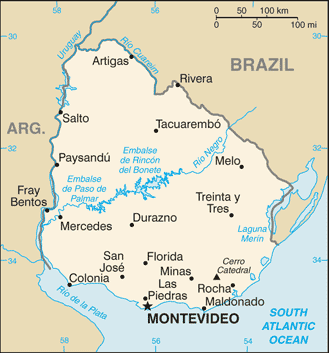 Authorities in Uruguay on May 2 released details on how cannabis will be produced and legally sold in the country, following
Authorities in Uruguay on May 2 released details on how cannabis will be produced and legally sold in the country, following  The US Supreme Court ruled 5-4 on April 22 in Navarette v. California that a traffic stop that led to a marijuana arrest was constitutional because police had reasonable suspicion the driver was intoxicated. In 2008, California Highway Patrol officers stopped Lorenzo Prado Navarette's pickup truck on a Mendocino County road based on a 911 tip about reckless driving. The officers said they smelled marijuana when approaching the vehicle. They conducted a search and found 30 pounds of cannabis. Navarette and a passenger were arrested and charged. At trial, they moved to suppress the evidence on grounds that the search violated their Fourth Amendment rights because the officers lacked reasonable suspicion when they pulled Navarette over. But in the opinion authored by conservative Justice Clarence Thomas, the majority found that while an anonymous tip will not always lead to reasonable suspicion, in this case it did. The court found that "under appropriate circumstances, an anonymous tip can demonstrate sufficient indicia of reliability to provide reasonable suspicion to make an investigatory stop." Conservative Justice Antonin Scalia wrote a dissent that was joined by the court's liberals, Ruth Bader Ginsburg, Sonia Sotomayor and Elena Kagan. Conservatives John Roberts and Samuel Alito lined up with the majority, as did swing voters Stephen Breyer and Anthony Kennedy. (
The US Supreme Court ruled 5-4 on April 22 in Navarette v. California that a traffic stop that led to a marijuana arrest was constitutional because police had reasonable suspicion the driver was intoxicated. In 2008, California Highway Patrol officers stopped Lorenzo Prado Navarette's pickup truck on a Mendocino County road based on a 911 tip about reckless driving. The officers said they smelled marijuana when approaching the vehicle. They conducted a search and found 30 pounds of cannabis. Navarette and a passenger were arrested and charged. At trial, they moved to suppress the evidence on grounds that the search violated their Fourth Amendment rights because the officers lacked reasonable suspicion when they pulled Navarette over. But in the opinion authored by conservative Justice Clarence Thomas, the majority found that while an anonymous tip will not always lead to reasonable suspicion, in this case it did. The court found that "under appropriate circumstances, an anonymous tip can demonstrate sufficient indicia of reliability to provide reasonable suspicion to make an investigatory stop." Conservative Justice Antonin Scalia wrote a dissent that was joined by the court's liberals, Ruth Bader Ginsburg, Sonia Sotomayor and Elena Kagan. Conservatives John Roberts and Samuel Alito lined up with the majority, as did swing voters Stephen Breyer and Anthony Kennedy. (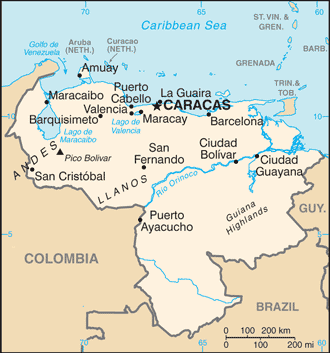 Venezuela’s interior minister Miguel Rodríguez announced April 22 the arrest of nine people on charges of leading, financing and organizing violent anti-government protests in the Caracas municipality of Chacao. On the basis of "previous intelligence operations," Rodríguez said 10 homes were raided before dawn, netting the nine suspects who, "according to people detained several days before, were handing out money" to demonstrators. He said police have warrants for 15 more who are supposedly directing "these violent groups engaged in terrorist activities." He added that those previously detained confessed that in addition to cash payments, they agreed to take to the streets in exchange for "genetically modified marijuana." Said Rodríguez: "They give them that drug to get them high and keep them in permanent activity against security forces." (
Venezuela’s interior minister Miguel Rodríguez announced April 22 the arrest of nine people on charges of leading, financing and organizing violent anti-government protests in the Caracas municipality of Chacao. On the basis of "previous intelligence operations," Rodríguez said 10 homes were raided before dawn, netting the nine suspects who, "according to people detained several days before, were handing out money" to demonstrators. He said police have warrants for 15 more who are supposedly directing "these violent groups engaged in terrorist activities." He added that those previously detained confessed that in addition to cash payments, they agreed to take to the streets in exchange for "genetically modified marijuana." Said Rodríguez: "They give them that drug to get them high and keep them in permanent activity against security forces." (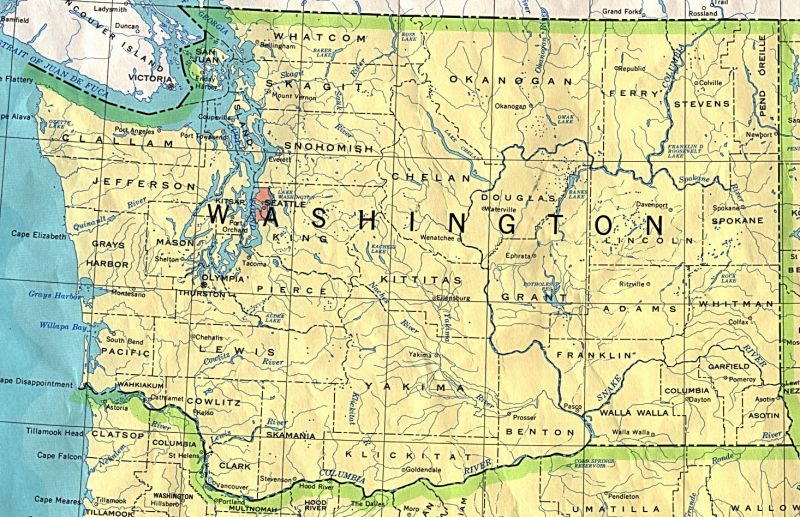 Family members from a rural area of eastern Washington state are to go to trial next month on federal marijuana charges, despite the Obama administration's repeated claims that it does not target seriously ill patients. The federal trial of the "Kettle Falls 5" is scheduled for May 12, pending several pretrial motions which will be heard on April 22 before US District Judge Fred Van Sickle in Spokane, Wash. Because of marijuana's illegal status under federal law, patients like the "Kettle Falls 5" are typically prohibited from raising a medical necessity or state law defense in federal court..
Family members from a rural area of eastern Washington state are to go to trial next month on federal marijuana charges, despite the Obama administration's repeated claims that it does not target seriously ill patients. The federal trial of the "Kettle Falls 5" is scheduled for May 12, pending several pretrial motions which will be heard on April 22 before US District Judge Fred Van Sickle in Spokane, Wash. Because of marijuana's illegal status under federal law, patients like the "Kettle Falls 5" are typically prohibited from raising a medical necessity or state law defense in federal court..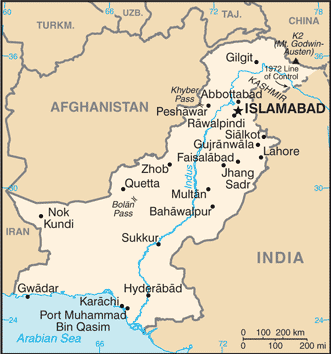 Nearly 108 tribesmen from Pakistan's remote northwestern borderlands were abducted by presumed Taliban militants April 12 from a mela (festival) where local hashish merchants were displaying and sampling their wares. Most were liberated the following day, but 15 men belonging to the Qamber Khel tribe are still being held. The mela was taking place at Haider Kandao, a village that straddles the tribal agencies of Khyber, Orakzai and Central Kurram in Pakistan's Federally Administered Tribal Areas, near the border with Afghanistan. Opium and cattle were also being exchanged at the meeting when it was stormed by gunmen from the
Nearly 108 tribesmen from Pakistan's remote northwestern borderlands were abducted by presumed Taliban militants April 12 from a mela (festival) where local hashish merchants were displaying and sampling their wares. Most were liberated the following day, but 15 men belonging to the Qamber Khel tribe are still being held. The mela was taking place at Haider Kandao, a village that straddles the tribal agencies of Khyber, Orakzai and Central Kurram in Pakistan's Federally Administered Tribal Areas, near the border with Afghanistan. Opium and cattle were also being exchanged at the meeting when it was stormed by gunmen from the  The latest boost to anti-cannabis propaganda comes in the form of California's crippling drought. The dought is no joke. For the first time in its 54-year history, the
The latest boost to anti-cannabis propaganda comes in the form of California's crippling drought. The dought is no joke. For the first time in its 54-year history, the 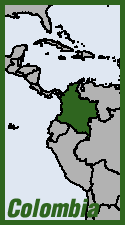 An official from the capital district government of Bogotá on March 28 called upon Colombia’s national government to open debate on broadening the policy of cannabis decriminalization. "We really need leadership from the Congress and the government to regulate the medicinal and recreational use of marijuana," said the general secretary of the Bogotá mayor's office, Susana Muhamad. Despite efforts by the previous government of President
An official from the capital district government of Bogotá on March 28 called upon Colombia’s national government to open debate on broadening the policy of cannabis decriminalization. "We really need leadership from the Congress and the government to regulate the medicinal and recreational use of marijuana," said the general secretary of the Bogotá mayor's office, Susana Muhamad. Despite efforts by the previous government of President 





Recent comments
4 weeks 12 hours ago
5 weeks 20 hours ago
5 weeks 1 day ago
6 weeks 3 days ago
11 weeks 4 days ago
14 weeks 14 hours ago
19 weeks 1 day ago
31 weeks 21 hours ago
33 weeks 1 day ago
34 weeks 1 day ago